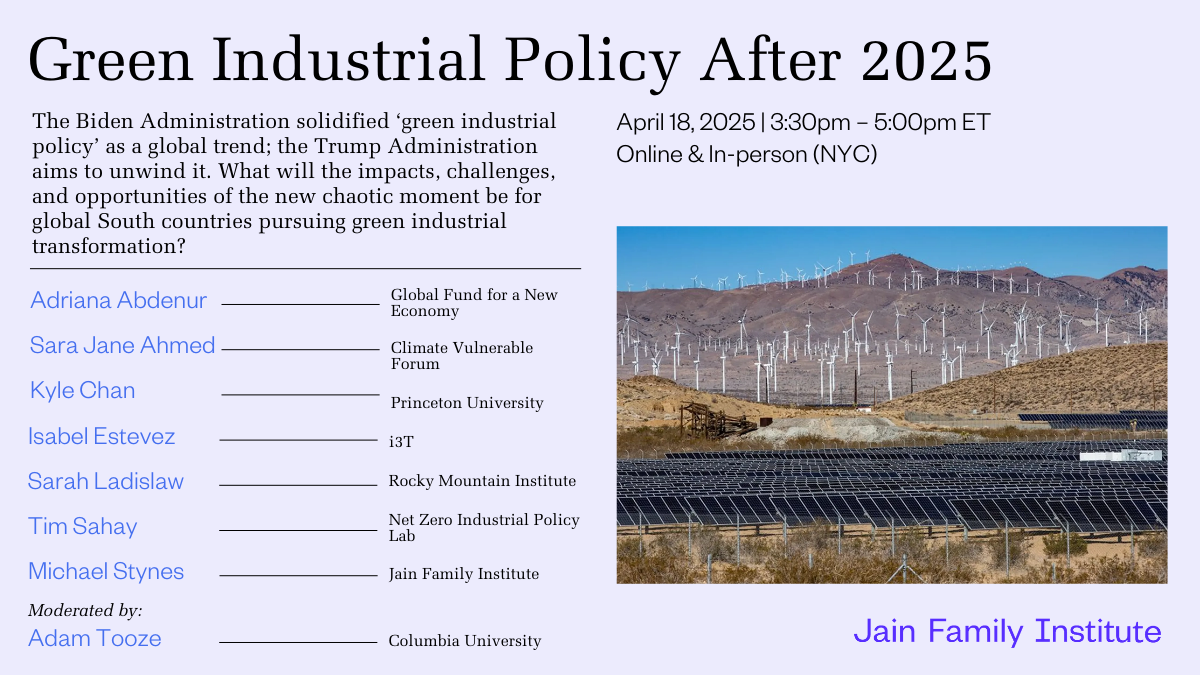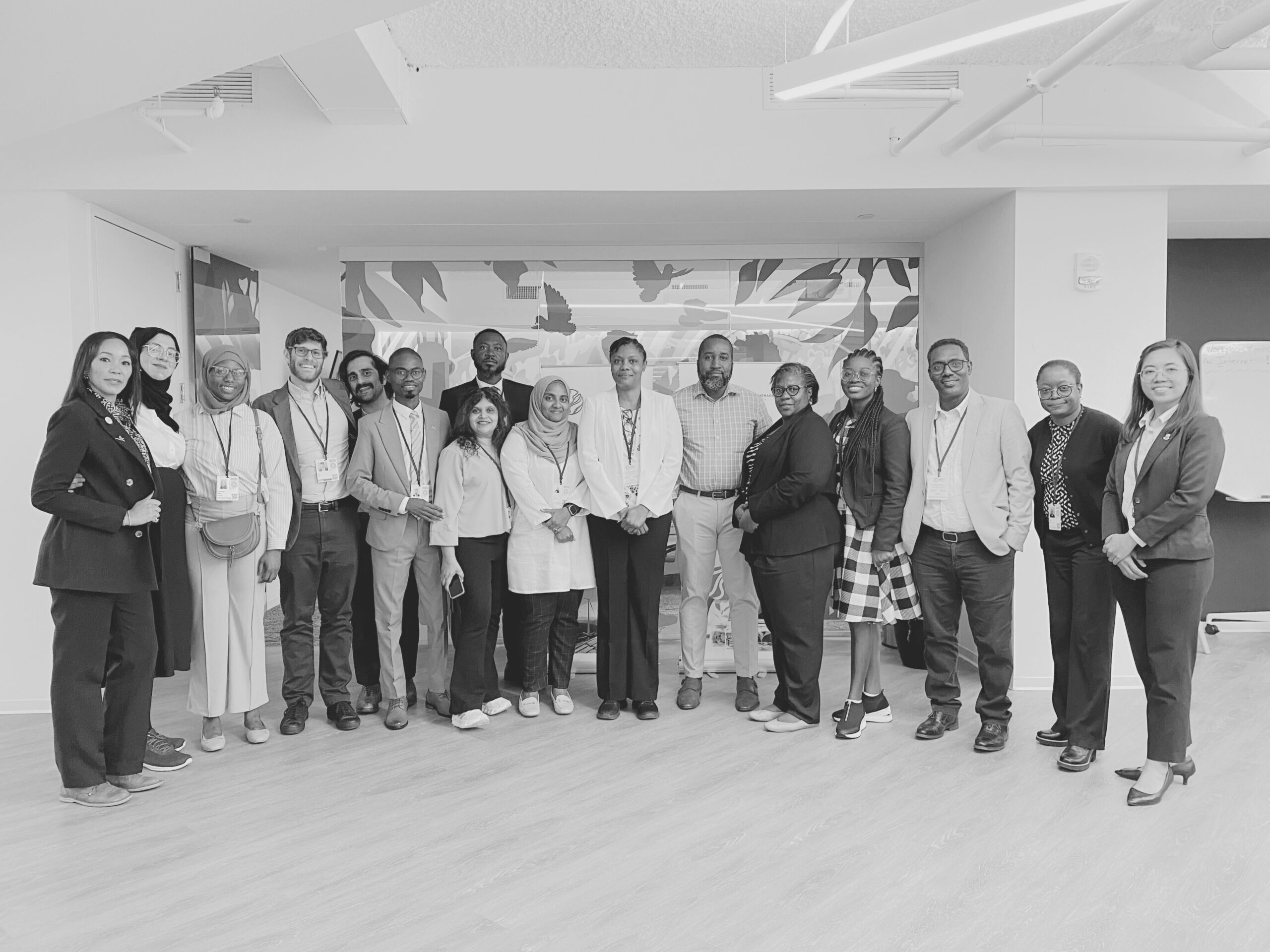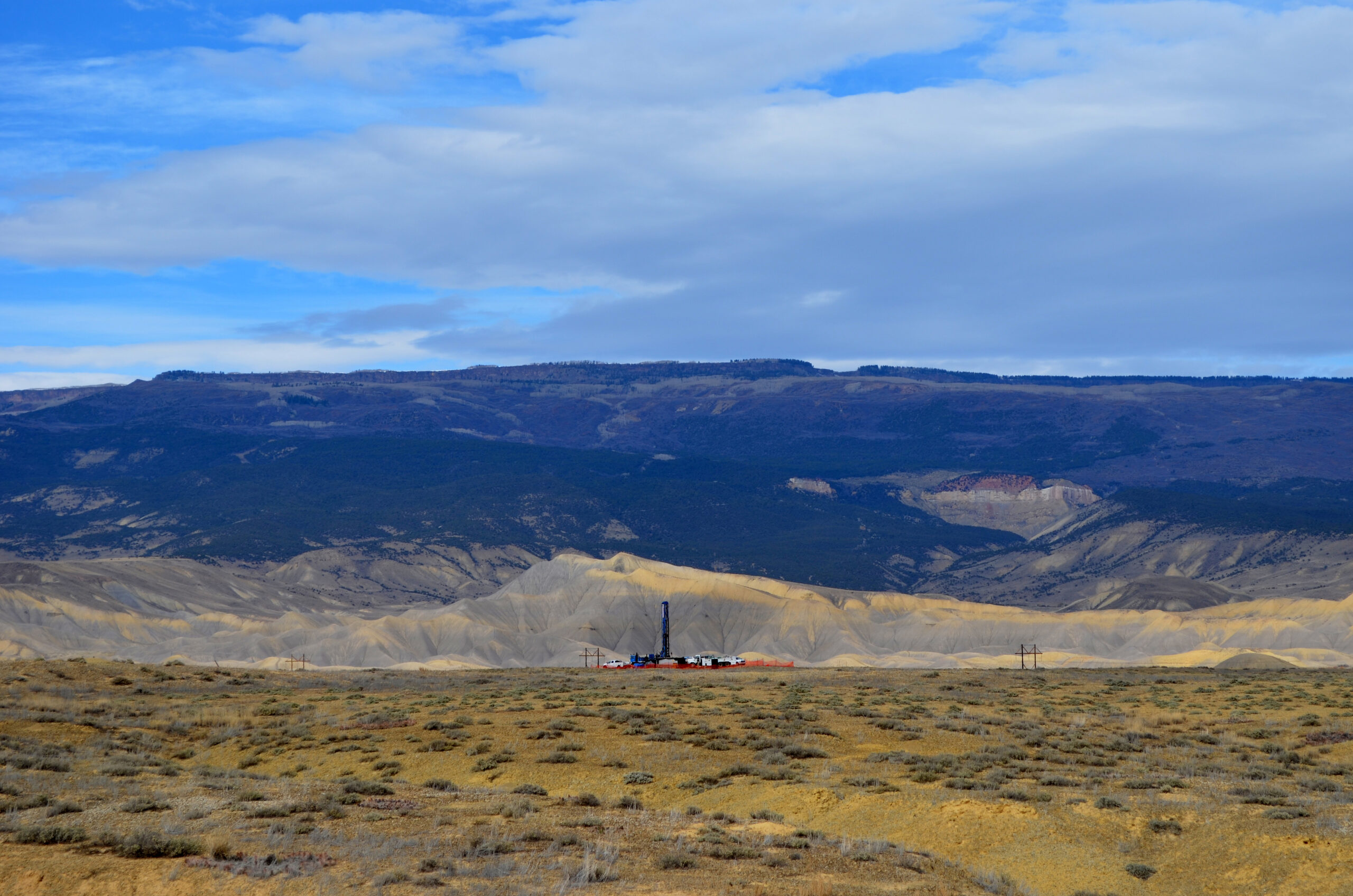Global Green Industrial Policy After 2025

Amid escalating chaos in the global trade system emanating from the White House, join us on April 18 at 3:30pm to 5pm ET for a discussion on the future of the global push for green industrial policy, with:
Adriana Abdenur (Global Fund for a New Economy)
Sara Jane Ahmed (Climate Vulnerable Forum)
Kyle Chan (Princeton University)
Isabel Estevez (i3T)
Sarah Ladislaw (Rocky Mountain Institute)
Tim Sahay (Net Zero Industrial Policy Lab)
Michael Stynes (Jain Family Institute)
Adam Tooze (Columbia University)
The Biden Administration and its Inflation Reduction Act consolidated “green industrial policy” as a global policy watchword. “Friendshoring” of energy-critical supply chains was central to the IRA’s vision, while the Biden administration’s integration of security partners into a global trade and economic regime was slow and halting. Post-Covid, governments across the world, and in particular the global South, had announced ambitious policies to promote investment in transition-relevant sectors, taking up the broad strokes mission of a combined program of green and equitable development.
The second Trump Presidency means the death of this push on the domestic US level, and the replacement of a (however fractious) consensus on green industrial policy with an environment of chaos and uncertainty. Meanwhile, Europe is in the process of dismantling its self-imposed fiscal constraints—but with much remaining uncertainty about what it will spell for green investment. And China continues to be far and away the leader in green energy tech and deployment—but has also reduced its direct global reach. Alongside mounting geopolitical upheaval, demand for EVs, batteries, solar and other green technologies remain strong and global investment in green tech exceeded $2 trillion by the end of 2024. Now, in the early months of 2025, unprecedented uncertainty and trade war threaten the stability of the global economy—including green investment plans—and the fragile compacts that have made up the existing rules of the game.
What will the impacts, challenges, and opportunities of this new landscape be for global South countries pursuing green industrial transformation? What does a new period of incredibly global uncertainty mean for the pace and pathways of global decarbonization?
Related
JFI and Climate Vulnerable Forum move towards multi-sovereign investment fund
April 23 meeting with V20 representatives from eleven member countries kicks off discussions on new South-South mechanism to organize climate investment.
Event: Mineral Wealth and Electrification: A Producer-Country Perspective
Join us for a Zoom panel discussion on December 12.
New series: Mineral Wealth and Electrification
On the shifting map of natural resource wealth, and new possibilities for strategic development.


